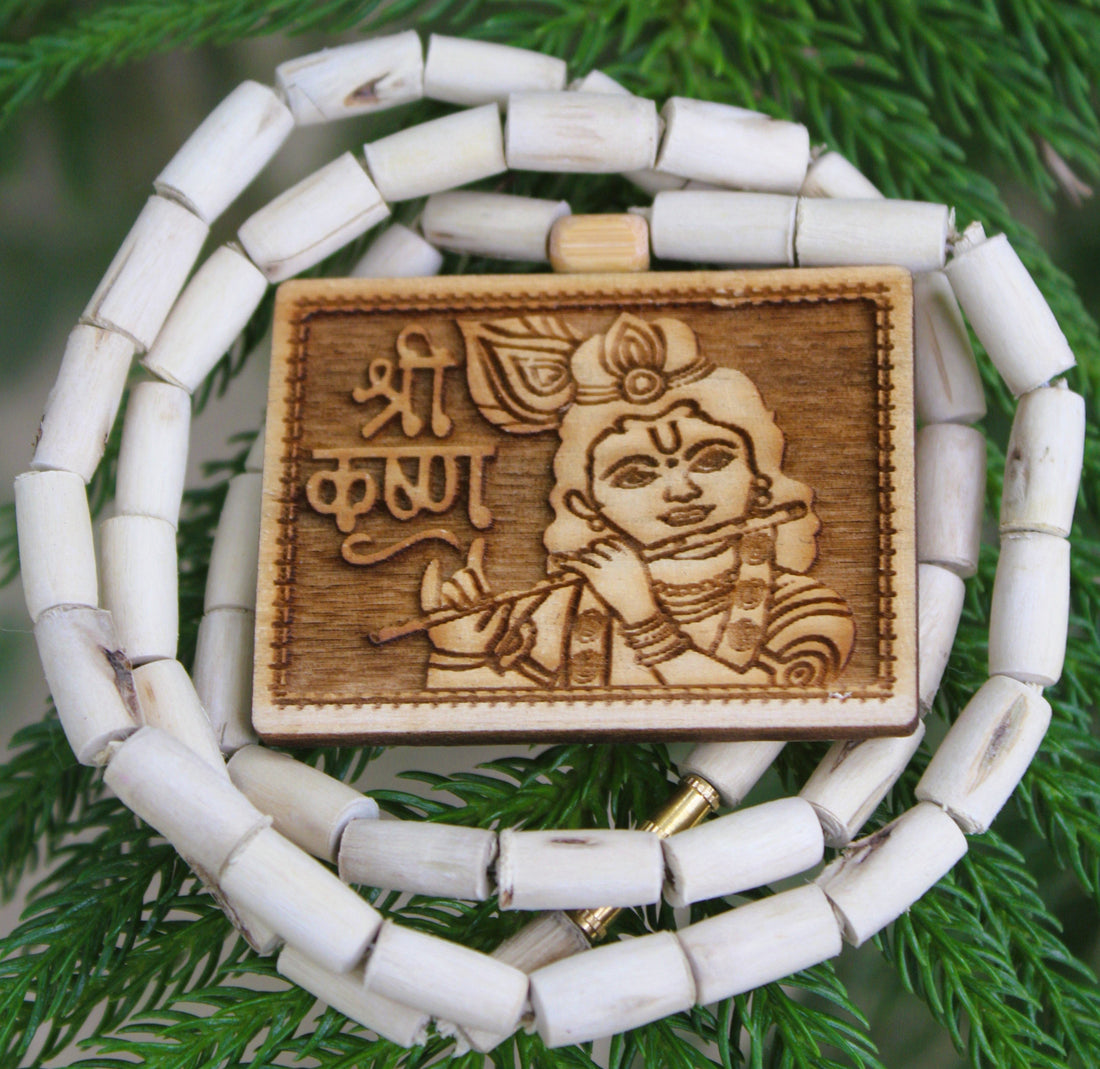
Who Should Avoid Wearing a Tulsi Mala? Important Warnings
Share
The Tulsi Mala, made from the sacred Tulsi (Holy Basil) plant, holds immense spiritual significance in Hinduism, Vaishnavism, and other religious traditions. It is revered for its purity, divine vibrations, and healing properties. However, despite its profound benefits, not everyone should wear a Tulsi Mala. Certain individuals and circumstances make wearing it inappropriate, and ignoring these guidelines can lead to spiritual, cultural, or personal conflicts. Below, we outline the key warnings and restrictions associated with wearing a Tulsi Mala.
1. Non-Religious or Casual Wearers Should Reconsider
The Tulsi Mala is not just an accessory; it is a sacred item used for devotion and spiritual practice. Those who do not follow a spiritual path or Vaishnavism may unintentionally disrespect its religious importance. Wearing it purely as a fashion statement undermines its significance, making it inappropriate for casual wear.
2. Individuals Who Consume Meat and Alcohol
One of the primary rules of wearing a Tulsi Mala is maintaining a pure and sattvic (spiritually clean) lifestyle. Consumption of non-vegetarian food, alcohol, tobacco, or any intoxicants contradicts the spiritual values associated with Tulsi. Devotees believe that engaging in these habits while wearing a Tulsi Mala diminishes its sacred energy and attracts negative karma.
3. People Engaging in Tamasik Activities
Those involved in violence, dishonesty, unethical work, or actions that harm others should refrain from wearing a Tulsi Mala. The mala represents purity, righteousness, and devotion, and wearing it while engaging in harmful activities disrespects its divine nature.
4. Women During Menstruation
In Hindu traditions, women are often advised to avoid wearing or touching sacred objects like the Tulsi Mala during menstruation. This belief is based on ancient customs and the idea that the body undergoes a cleansing process during this time. While opinions vary, many religious followers adhere to this restriction out of respect for tradition.
5. Those Who Do Not Follow the Rules of Maintenance
A Tulsi Mala must be treated with respect and care. It should never be worn while engaging in unclean activities, such as going to the restroom, bathing with soap that contains chemicals, or sleeping without chanting a prayer. Neglecting these guidelines can diminish its spiritual potency.
6. Individuals in Impure Environments
Wearing a Tulsi Mala in polluted, impure, or disrespectful environments can lead to contamination of its spiritual essence. Places such as bars, slaughterhouses, or locations filled with negative energy are considered inappropriate for wearing sacred items like the Tulsi Mala.
7. Those Who Are Not Initiated in Spiritual Practice
A Tulsi Mala is often worn by initiated devotees, particularly in Vaishnavism, where it represents dedication to Lord Krishna or Vishnu. Those who have not been initiated into a spiritual path may not fully understand or uphold the disciplinary vows required when wearing this sacred mala.
8. People Who Do Not Believe in Its Power
Faith plays a crucial role in the effectiveness of any spiritual tool. Those who wear a Tulsi Mala without belief or respect for its spiritual significance may not receive its intended benefits. Treating it as an ordinary bead necklace can result in a loss of its sacred essence.
9. Those Who Are Not Willing to Follow a Devotional Lifestyle
Wearing a Tulsi Mala is a commitment to a devotional lifestyle, which includes chanting mantras, engaging in spiritual practices, and living a righteous life. If one is unwilling to follow these guidelines, it is better not to wear it.
10. Individuals in Certain Professions
Certain professions, such as those involving meat processing, alcohol production, gambling, or deceitful business practices, contradict the spiritual purity required to wear a Tulsi Mala. People engaged in such fields should avoid wearing it unless they are willing to align their lifestyle with its spiritual principles.
11. Those Who Are Not Ready to Accept the Responsibilities
Wearing a Tulsi Mala is not just a privilege but also a responsibility. It requires adherence to certain rules, practices, and ethical conduct. Those who are not ready to commit to these responsibilities should refrain from wearing it.
12. Individuals Who Experience Discomfort or Negative Reactions
While rare, some individuals may experience discomfort, irritation, or unease after wearing a Tulsi Mala. This could be due to past karmic influences, energetic misalignment, or personal sensitivity. If wearing the mala causes distress, it is best to remove it and seek spiritual guidance.
Final Thoughts
The Tulsi Mala is a powerful symbol of devotion, purity, and spiritual upliftment. However, it is not meant for everyone. Understanding who should avoid wearing a Tulsi Mala ensures that it is treated with the respect and reverence it deserves. Those who wish to wear it should be willing to honor its traditions, follow a disciplined lifestyle, and uphold spiritual values. By doing so, one can truly benefit from its divine blessings.
